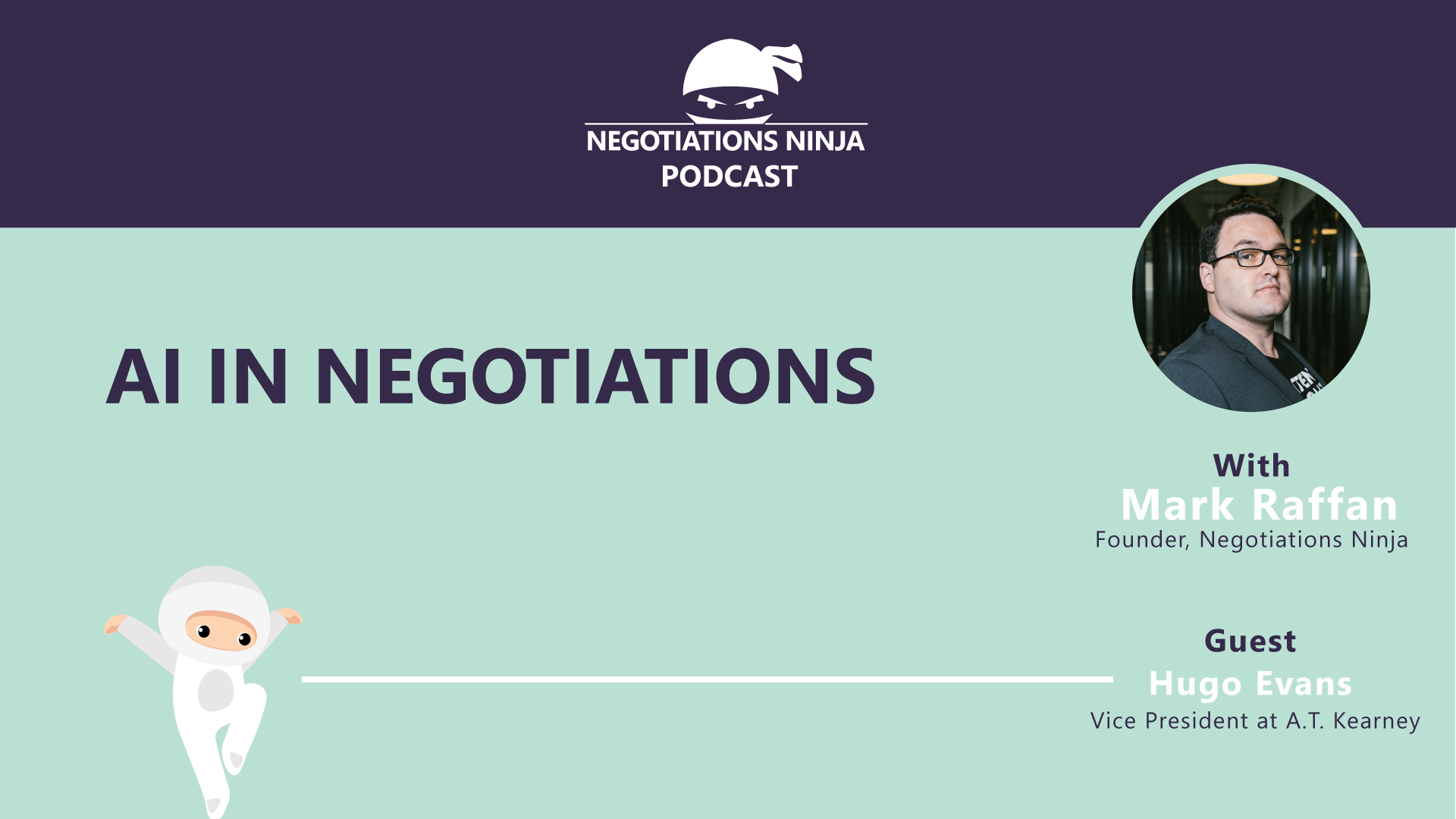Are robots and computers taking our jobs? The speed and pace at which digital procurement and artificial intelligence are moving are incredible. The brilliant Hugo Evans joins us to help sort out all our questions about what’s going on in the artificial intelligence and digital procurement space. How do I use AI? What’s the impact of using AI technology? Will it change my headcount? What are the changes to my strategy required to leverage AI? How will AI improve efficiency?
Hugo takes us through the whole spectrum of the AI conversation including what AI is, how procurement professionals can use it, and the changes to organizations that AI brings. What biases do humans bring into the mix when programming technology? What’s the difference between clean data and good data? What companies are doing AI right? Hugo Evans is a Digital Futurist who’s sharing the ins and outs of how the future of AI isn’t the way Hollywood would have you think.
Download as an MP3 by right-clicking here and choosing “save as”.
Outline of This Episode
- [0:36] Is a computer taking our jobs?
- [2:23] Hugo Evan’s expertise in digital procurement
- [4:29] Digital procurement has exploded
- [6:42] The definition of AI in procurement
- [14:34] The potential downfalls of AI in negotiation
- [18:26] High-volume low-complexity sourcing will be automated
- [31:05] Examples of how machines can benefit you
- [35:04] The difference between good data and clean data
- [40:50] Three tools that Hugo recommends implementing
Embrace digital innovation—or go extinct
Digital procurement has exploded. We’ve seen innovations in big data, IoT, and machine learning/AI. Finance, HR, and IT have been adapting and evolving with technological advances. Any consumer-facing company has embraced digital because they’ve had to—or they’ll die out. And these technologies have made tremendous impacts.
According to Hugo, digital procurement is taking technology and insights generated by analytics and using it to transform the need to procure goods and services. It’s creating value for the company you work for. Now is procurement’s time to embrace the digital movement.
Embracing AI is creating value
Over the last 10 years, there’s been an explosion in what we refer to as “analytics” or “data science.” You’re applying advanced mathematical techniques with the power of mass processing. You end up with the ability to generate insights to solve problems in a way that has never been done before.
Hugo advocates looking at analytics to see “What is the best possible outcome (optimization)? What could happen (simulation)? Or what is likely to happen (predictive analytics)?” It’s forward-looking that develops proactive insights and helps determine your level of risk. Should you add more suppliers? How does it change warehouse and distribution costs? That’s where simulation can help you.
If you have all of these possibilities, how do you optimize and figure out the best possible outcome with the lowest price that is the most efficient? Hugo emphasizes that “The ability to generate those insights is what we really mean by analytics.” Another layer is machine learning—the ability to take those insights and learn from them over time.
The potential downfalls of AI in negotiation
Hugo points out that the downfalls are the same as they are for any task that we seek to automate. AI is being trained with what we know—and humans are flawed. We have biases. We can train bots to negotiate on our behalf or run sourcing events. The problem is how are we training them? Hugo notes that “If we train them on poor procurement technique, we are training a bot to execute sub-optimally.” We need to ensure we’re training the AI properly.
High-volume low-complexity sourcing WILL be automated
Hugo believes humans will be replaced—to some extent—because the end goal is to be efficient. Why would you have a human dealing with high-volume low-complexity spend when a bot can do it more efficiently with less waste? It’s NOT a value-add activity. Wherever you have large concentrations of people doing factory-type work will be automated. Negotiators can take a step back and watch what the machine is doing and see patterns they couldn’t see.
Humans should move into more complex and advance category sourcing. It’s going after spend that is hard to specify (i.e. services). How many times have you tried to engage with marketing and get turned away? Imagine if you had tools to help make that process smoother.
Why wouldn’t you be tuning and optimizing a suite of bots trained to negotiate? We are seeing that today in bits and pieces. We see another tool emerging where the bot tracks your movements while you run sourcing events and can learn and take over your position.
IT, HR, and finance have been automating. As they continue to do so, they’re going to shrink. They’re smaller than they were 20 years ago. The ratio of people to machines has dwindled. But if you apply that same logic to procurement, Hugo believes it won’t hold true. As you automate procurement, you free them up to work on value-added activities. You’re elevating procurement. Instead of haggling over pennies, you start to move people into sustainability.
What is the difference between good data and clean data? And what are three tools that Hugo recommends implementing? Listen to the whole episode to hear his thoughts!
Resources & People Mentioned
Connect With Mark
- Follow Negotiations Ninja on Twitter: @NegotiationPod
- Connect with Mark on LinkedIn
- Follow Negotiations Ninja on LinkedIn
- Connect on Instagram: @NegotiationPod




